Donald Trump’s war with Twitter is about much more than his anger at being fact-checked – it’s a sign he’s worried
The US President has declared war on Twitter – the platform he once loved – but it’s about much more than his anger at being flagged by fact-checkers.
Donald Trump’s latest outburst on Twitter, about Twitter, with threats to “close down” the social media giant is a sign that the US president is worried ahead of November’s election.
Trump took to the platform this week to launch a blistering attack, accusing it of bias and political interference after it attached a fact-check label to one of his posts.
He wrote: “Republicans feel that Social Media Platforms totally silence conservatives (sic) voices. We will strongly regulate, or close them down, before we can ever allow this to happen. Clean up your act, NOW!!!!”
Trump then signed an executive order to narrow their current protections from liability regarding the content posted on Twitter.
But the drama didn’t stop there.
On Friday, Twitter censored one of the president’s tweets about the protests in Minneapolis - in which he wrote “when the looting starts, the shooting starts” - prompting more fiery retorts.
Twitter is doing nothing about all of the lies & propaganda being put out by China or the Radical Left Democrat Party. They have targeted Republicans, Conservatives & the President of the United States. Section 230 should be revoked by Congress. Until then, it will be regulated!
— Donald J. Trump (@realDonaldTrump) May 29, 2020
But rather than a furious outburst from a man well-known for them, this could be part of a calculated – albeit nervous – strategy with the upcoming election in mind.
Trump declaring war on Twitter is as much about his anger with the social media platform as it’s about something else entirely.
It’s a risky move that might erode his power on the platform, which has been his preferred method of communication since he announced his candidacy back in 2015.
RELATED: Tweets that have come back to bite Donald Trump
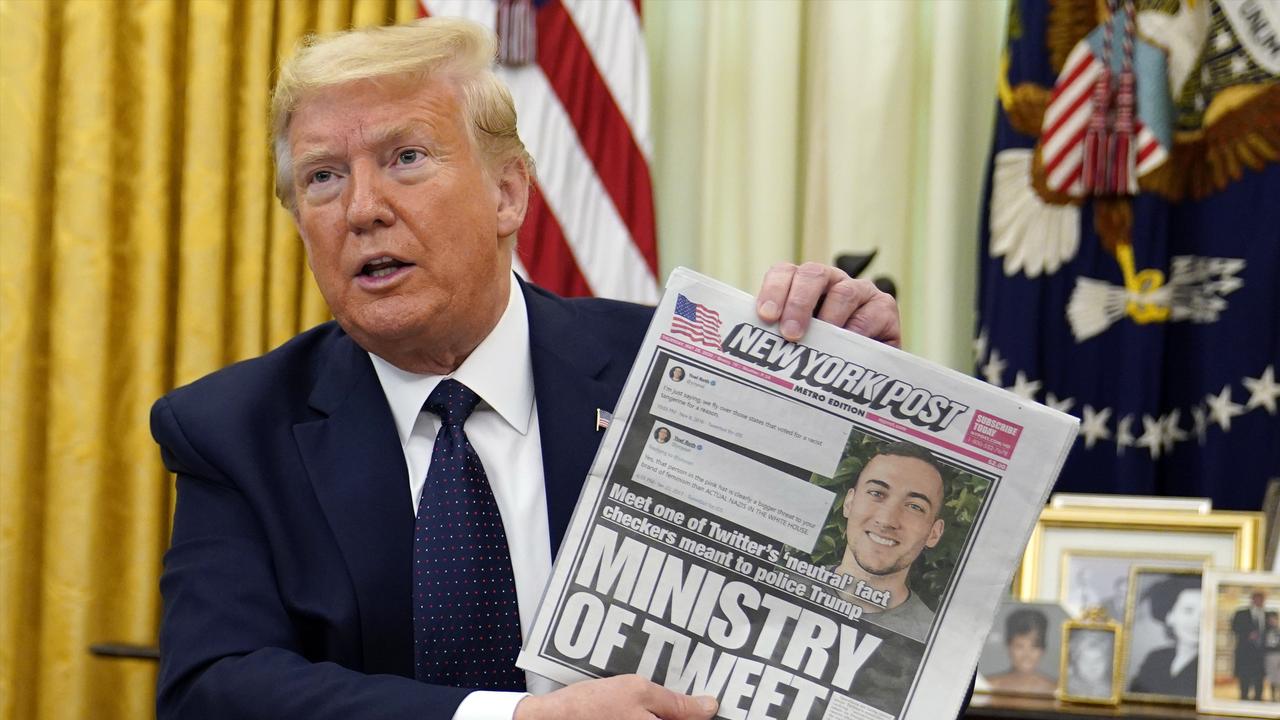
MEANS OF DISTRACTION
Several years ago, Trump made a poignant prediction.
He took to Twitter to warn Americans that then-President Barack Obama could try to start a war with Iran in order to distract from his polling woes, in a bid to ultimately win the 2012 election.
“Now that Obama’s poll numbers are in tailspin – watch for him to launch a strike in Libya or Iran. He is desperate,” he wrote.
In January this year, as Trump’s approval rating collapsed to a dangerously low 42 per cent, he took to Twitter with an alarming declaration … about starting a war with Iran.
“These Media Posts will serve as notification to the United States Congress that should Iran strike any U.S. person or target, the United States will quickly & fully strike back, & perhaps in a disproportionate manner,” Trump wrote.
It seemingly came out of nowhere and was described by pundits as a clear attempt at distraction – something guaranteed to generate headlines and discussion, and move the focus from his Impeachment.
Now, while he battles with the fallout of his arguably dismal response to the coronavirus pandemic, with the US death toll passing 100,000 and the economy in tatters, he seems to be at it again.
Nearly 100,000 lives have been lost, and tens of millions are out of work.
— Joe Biden (@JoeBiden) May 24, 2020
Meanwhile, the president spent his day golfing. pic.twitter.com/H1BVNtgVjA
The president has taken to Twitter repeatedly of late to essentially accuse TV host and former Republican congressman Joe Scarborough of murdering his former staffer Lori Klausutis.
The accusation is baseless. It has been investigated and dismissed. And Ms Klausutis’s widower has pleaded with Trump to cease the attack. But he hasn’t.
“Psycho Joe Scarborough is rattled, not only by his bad ratings but all of the things and facts that are coming out on the internet about opening a Cold Case. He knows what is happening!” the president wrote on Wednesday.
For weeks, including during press conferences when the COVID-19 crisis gripping the country was the main focus, Trump has also made reference to ‘Obamagate’ – a so-called conspiracy launched by his predecessor to bring down the administration.
And he seemed to incite public militias to ‘take back’ Democrat-controlled states who imposed tough lockdown measures.

Now, he’s launched an all-out war with a major American company, Twitter Inc.
“This is how a thug acts. But it’s also how Trump works to deflect public attention from his historically inept presidency,” Scott Martelle wrote in an opinion piece for the LA Times.
“He creates controversies, then turns them into us-vs-them fights to keep his base engaged and his critics outraged. In a divided country Trump makes the divide the issue, at the expense of the public wellbeing.”
Ironically, Martelle believes that Trump’s tweet about postal voting – which saw him hit with the fact-check label – was designed to erode trust in the November poll.
“Trump’s attacks on the mail-in voting option as a way to conduct an election amid the coronavirus pandemic is an effort to undermine public faith in the November election.
“And his attack on Twitter for supposed censorship (pointing out a lie is not censorship in any accepted definition) is an attempt to distract the electorate from his initial lie.”
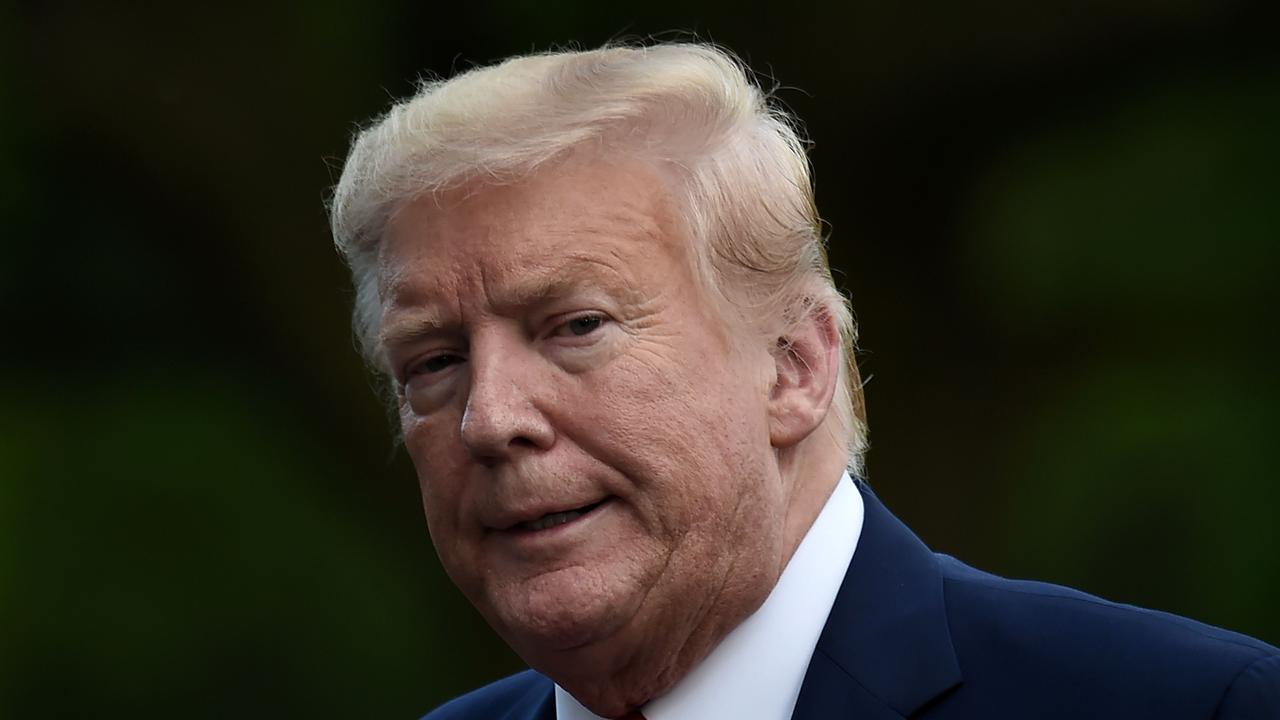
TRUMP NEEDS TWITTER
Twitter is one of the president’s main vehicles for sharing communication – and it’s hugely effective.
According to Gallup, three-quarters of Americans say they have seen, read or heard about Trumps tweets “a lot, or a fair amount”.
That’s despite only 26 per cent of Americans having an account themselves, and just 30 per cent of that cohort – roughly eight per cent of the population – following Trump.
“Fifty-five per cent of those who follow Trump on Twitter say they read all or most of his tweets, with another 25 per cent saying they read some, Gallup said.
“Taking all of this into account, four per cent of Americans overall have a Twitter account, follow Trump's account and read all or most of his tweets,” Gallup said.
“The percentage reading Trump's tweets directly rises to six per cent when including those who say they read some of his postings.”
That’s not a huge number, but it doesn’t matter.
As Gallup put it, Trump uses Twitter more like “an old-fashioned press release or press conference statement”.
“Few Americans see or read his tweets directly, but many ultimately hear about them via media coverage or other means.”
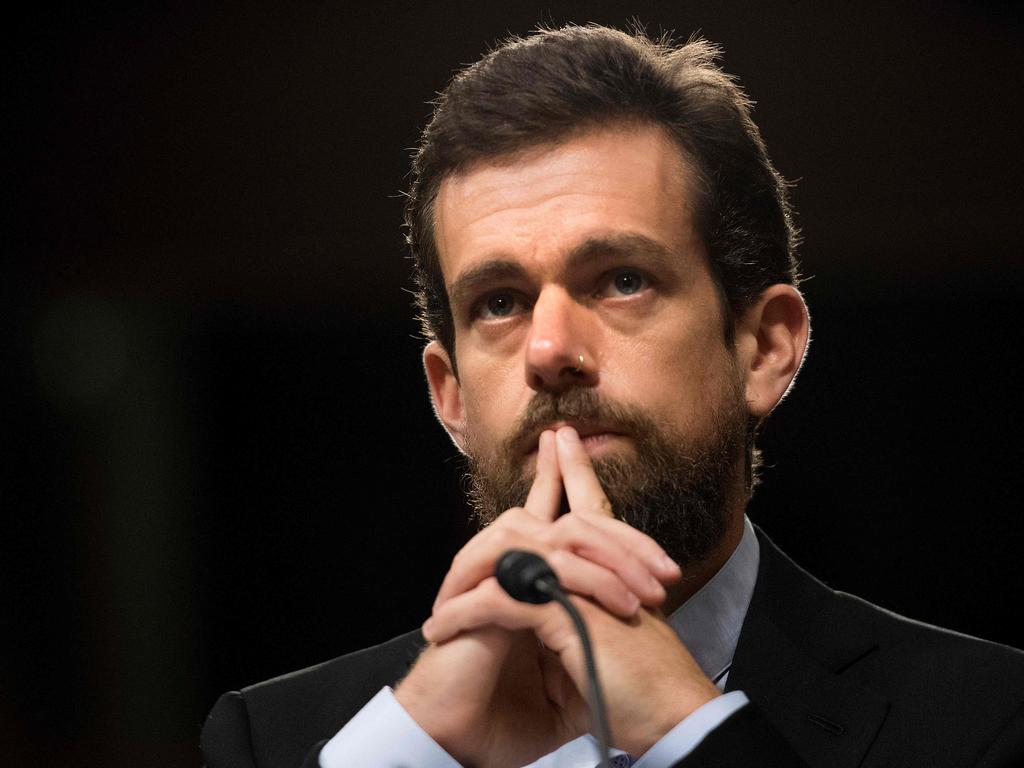
On top of that, Twitter has proven to be a very cheap vehicle for distributing the president’s thoughts, views and attacks on opponents.
During the 2016 election campaign, it was calculated that Trump received billions of dollars in free coverage thanks to news stories about things he had said or tweeted.
While campaigns have traditionally favoured expensive television ads to reach supporters or discredit opponents, Trump merely takes to Twitter.
If he is challenged by fact-checking on the social media platform, it could diminish the distribution of those messages during the upcoming campaign.
A MEANS OF CONTROL
Twitter isn’t just a vehicle for Trump to distract, attack and control the narrative.
It’s a way for the president to suppress any opposition within the Republican Party and its movement, JM Opal, Associate Professor of History and Chair of History and Classical Studies at McGill University, argues.
“Although most Americans don’t like him, Trump has an 80 per cent approval rating among Republicans,” Associate Professor Opal wrote for The Conversation.
“He uses this popularity, along with his Twitter feed, to bully Republican dissidents into silence.”
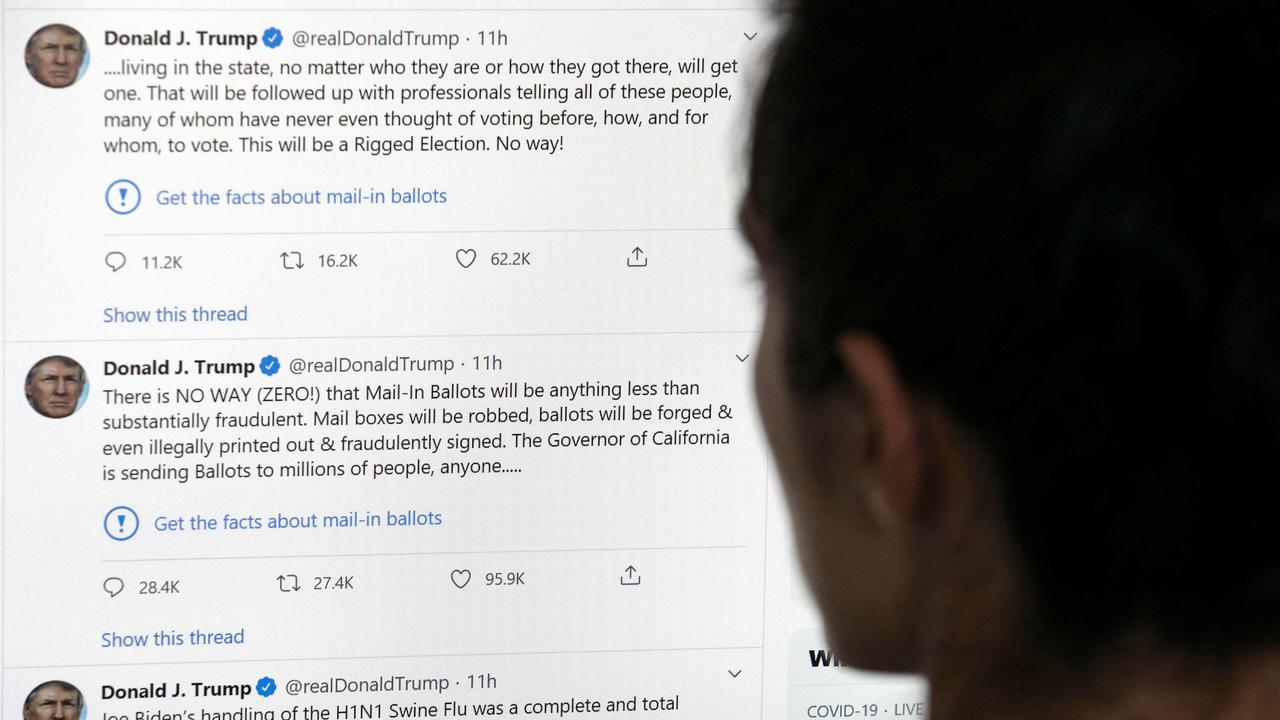
There were growing voices of discontent within the party, described as ‘Never Trumpers’, but they were drowned out by those in Trump’s corner.
“In any case, the Republicans now have little choice but to double down on their far-right vision of America, using voter suppression to eke out more wins in the Electoral College,” Associate Professor Opal said.
“Having alienated almost every other demographic, they must stick with their Trump-loving base. They have no one else. And Trump will do everything he can to win in November, unburdened by any sense of propriety, fairness or facts.
“It’s not even clear if he would accept defeat.”
SHOULD HE BE FACT-CHECKED?
Describing Trump as someone who tells lies is not an outrageous statement.
David Markowitz is a professor of psychology at the University of Oregon and has analysed the president’s various statements since he took office.
Dr Markowitz wrote in Forbes that most people are mostly truthful, with the average person telling one or two lies a day.
“As of early April, Trump has told 23.3 lies per day in 2020, a 0.5-lie increase since 2019,” Dr Markowitz wrote.
“What’s more, Trump has averaged 23.8 lies per day since the first case of COVID-19 was reported in the US — another 0.5-lie increase. Even during a pandemic, when the public needs to trust and rely on him the most, deception remains a core part of the president’s playbook.”
Trump supporters argue that the president shouldn’t be subjected to fact-checking because it impinged on his freedom of speech.
Of course, he’s free to say whatever he likes on any platform – but not free from the consequences that might arise.
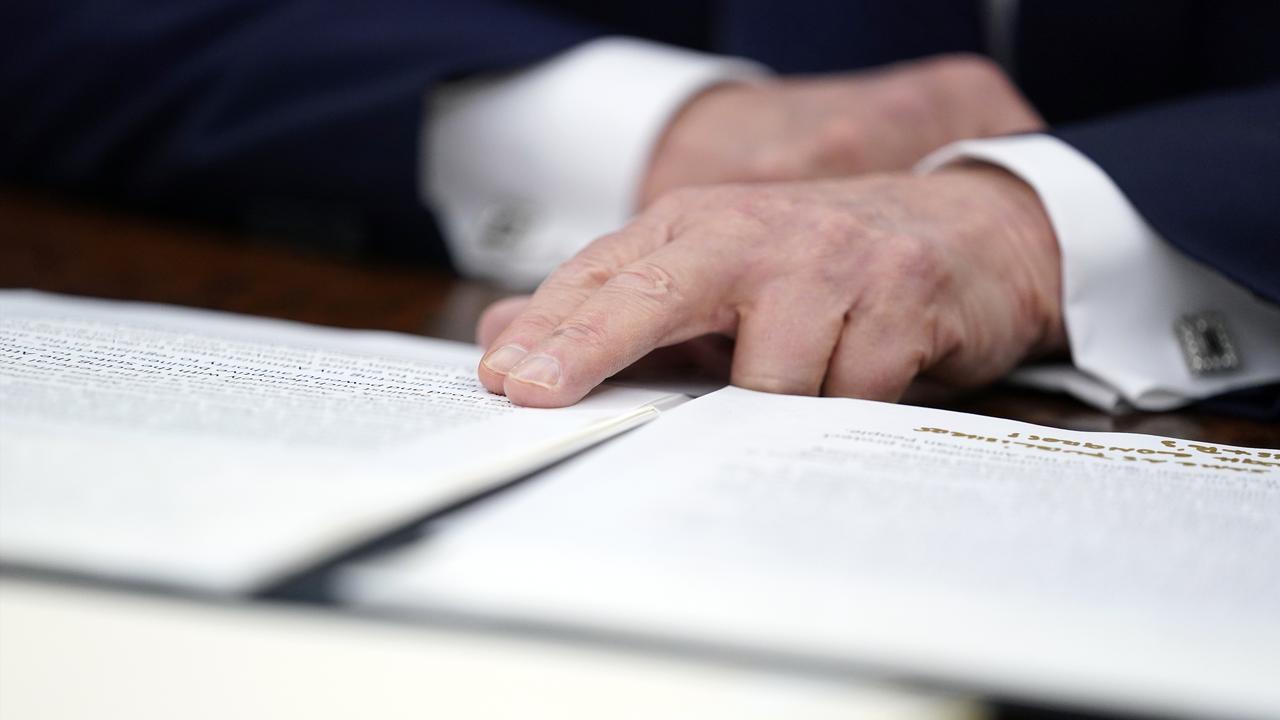
Fabienne Peter, a professor of philosophy at the University of Warwick, also argues that Trump should be held to a higher standard.
Healthy public debate is a key feature of a well-functioning democracy and so political contributions should aim to uphold – not undermine – standards of responsible decision-making, Professor Peter said.
“But for contributions from influential political figures, this is especially important,” he said.
“Because their posts carry so much weight in both public and political debate, they pose a much greater threat to both. For this reason, special rules for Trump and his fellow world leaders make sense.”
Is there any point though?
As this week has shown, Trump sees the fact-check badge as a way of actually building support with his base by painting it as yet another example of the ‘elites’ and ‘insiders’ trying to squash his attempts to Make America Great Again.
It has emboldened his base, rather than make them think twice about the veracity of his claims.
It also amplified his initial claim that postal votes are problematic, by drawing attention to his initial claim.




